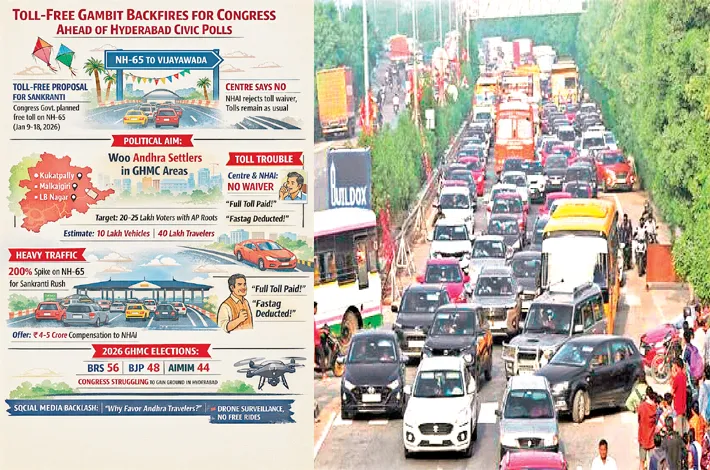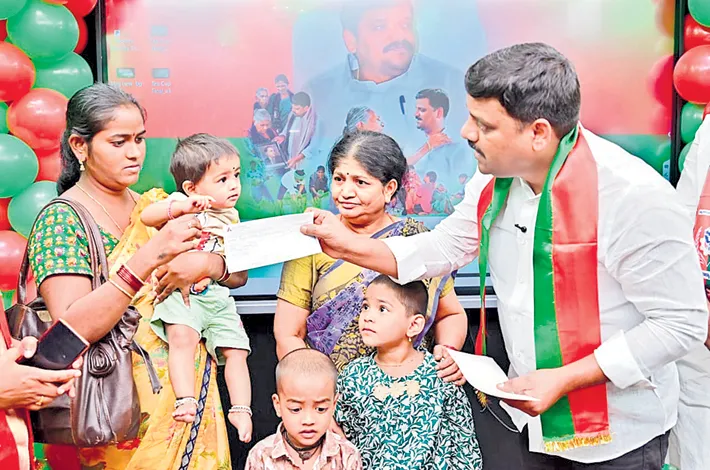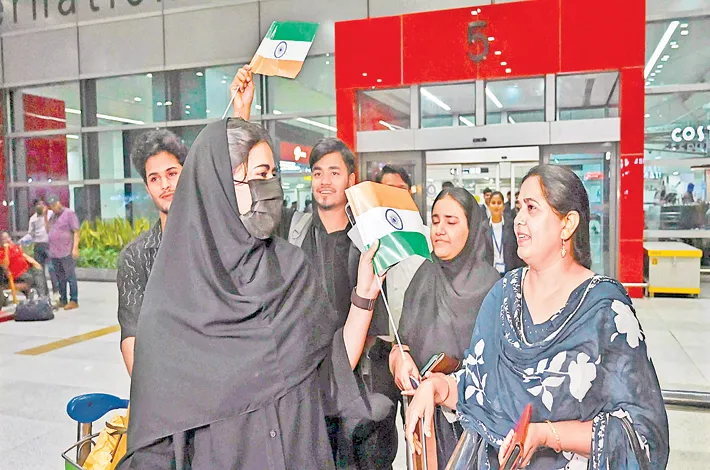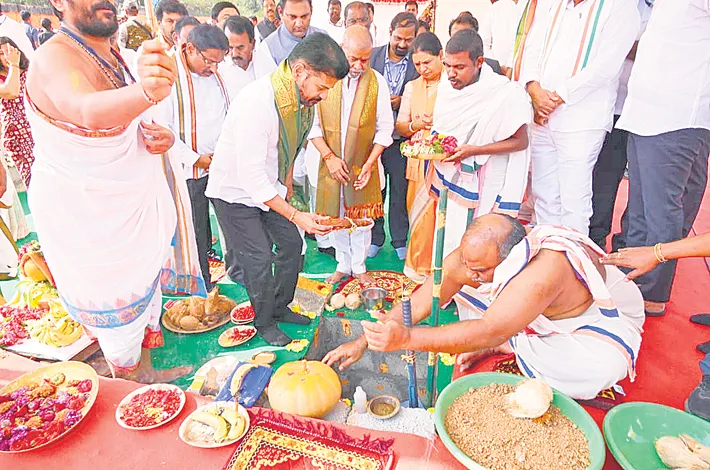Annulment to interim stay
09-11-2025 12:00:00 AM
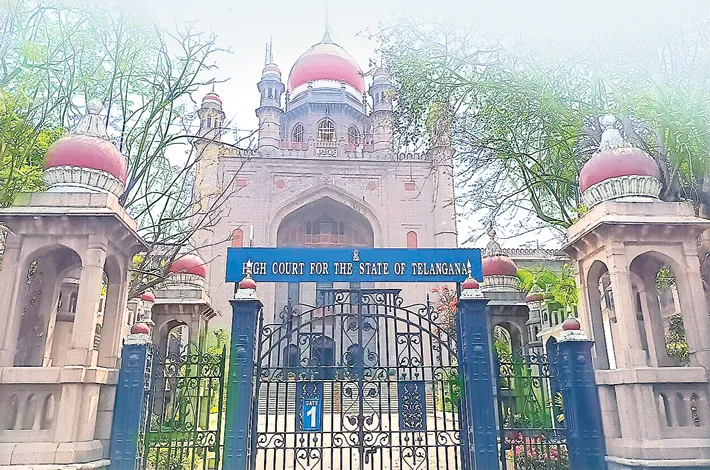
TG High Court’s Group-I verdict saga
In a span of just two weeks last September, the court issued two pivotal rulings that first dismantled the recruitment process's outcomes and then paused that very dismantling. These decisions, rooted in petitions from aggrieved aspirants, underscore the judiciary's dual role: safeguarding constitutional rights while tempering administrative disruptions. As the matter heads toward a final resolution, it highlights tensions between transparency demands and procedural pragmatism in high-stakes exams.
The Group-I recruitment, notified under No. 02/2024, marked Telangana's first such drive since its 2014 formation after a 14-year hiatus. Aimed at filling 563 top civil service posts, it drew over 400,000 applicants. The Prelims in October 2023 sifted 30,000 qualifiers, leading to the Mains from March 18-23, 2024. Controversy erupted with the final marks list on March 10, 2025, and the General Ranking List on March 30, 2025.
Thousands of unsuccessful candidates, led by figures like Bommera Sravan Kumar, filed writ petitions (W.P. Nos. 11439 and others of 2025), alleging violations of Articles 14 (equality) and 16 (equal opportunity). They pointed to opaque evaluation, inconsistent scoring, language-based disparities, and statistical anomalies in a process that evaluated 1.26 lakh scripts in 90 days.
On September 9, 2025, Justice Namavarapu Rajeshwar Rao delivered a comprehensive 100-page judgment in Bommera Sravan Kumar v. TGPSC. Analyzing the petitions, the single judge identified procedural shortcomings that undermined the process's integrity. Key concerns included the absence of provisional marks lists and subject-wise scores, preventing candidate verification. The judgment noted deviations from the notification, such as abrupt ranking without transparency, and highlighted evaluator mismatches—like economics experts grading environment papers or history lecturers assessing the Telangana Movement.
Centre-specific clustering of top ranks (e.g., centres 18 and 19) and language inequities were flagged: Telugu-medium candidates, numbering nearly 8,000, scored lower than a handful of Urdu-medium peers. Statistical oddities, including 719 candidates tying at scores like 253 or 373.5, suggested rushed or uniform grading. The judge also critiqued the evaluation timeline—some examiners allegedly reviewing 1,400 scripts daily—as unrealistic, alongside skipped moderation and fluctuating candidate counts (from 21,093 to 21,085).
Invoking precedents like Sanjay Singh v. U.P. Public Service Commission (2007), Justice Rao emphasized moderation's role in ensuring fairness. He described the lapses as a "systemic failure" breaching public trust and natural justice, though not attributing malice. The ruling annulled the marks and ranking lists, halting downstream appointments.
Remedial directives were detailed: TGPSC must re-evaluate all scripts manually within eight months using moderated panels of subject experts, statistical normalization, and transparency measures like publishing provisional scores, evaluator rosters, and digital archiving. Equal treatment across languages (Telugu, Urdu, English) was mandated, with bi-monthly progress reports. Non-compliance risked full Mains re-conduct. The state was tasked with auditing TGPSC operations and drafting safeguards, including costs on the commission.
This verdict was lauded by aspirants as a victory for marginalized candidates, particularly rural Telugu-medium hopefuls, who had protested for months. Legal observers viewed it as a template for PSC reforms, addressing nationwide complaints of opacity in bodies like UPPSC or BPSC. For TGPSC, it was a call to professionalize evaluations, potentially delaying bureaucracy but reinforcing meritocracy.
However, the momentum shifted swiftly. On September 24, 2025, a Division Bench of Chief Justice Aparesh Kumar Singh and Justice G.M. Mohiuddin, hearing appeals from TGPSC and the state, issued an interim suspension of the single judge's order. In a measured 20-page directive, the bench preserved the status quo, allowing provisional appointments for the 563 selectees while subjecting them to final adjudication. Hearings, initiated amid concerns over recruitment delays, revealed the bench's focus on evidentiary thresholds.
The Division Bench reasoned that the single judge's findings, while highlighting procedural gaps, lacked prima facie proof of widespread irregularities. No evidence emerged of leaks, mass copying, or undue influence; allegations of "mala fides" or compromised integrity were deemed unsubstantiated without specific misconduct instances. The bench cautioned against presuming bias from isolated disparities, such as language scoring, absent comparative data. It stressed judicial review's limits: courts should not supplant administrative expertise unless arbitrariness is "demonstrably proven," echoing the need for balance in first-time recruitments post-state bifurcation. With 3.02 lakh initial applicants and public service vacancies mounting, wholesale annulment risked "undue hardship" and governance setbacks.
TGPSC could issue provisional orders based on the March 2025 lists, revocable if appeals succeed. Parties were to submit synopses by October 10, 2025, with hearings extended multiple times—the latest to November 18, 2025. This stay offered immediate relief to selectees, averting a recruitment freeze amid Telangana's administrative overhaul.
Analytically, these rulings illuminate the judiciary's calibrated approach. The single judge's expansive scrutiny prioritized aspirant rights, aligning with Supreme Court mandates for transparency in K. Vinod Kumar v. S.P. Kumar (2017). But the Division Bench's restraint reflects a deference to executive functions, as in Union of India v. Rajesh P.U. (2003), preventing overreach that could paralyze services. For the 30,000 Mains takers, uncertainty lingers: re-evaluation could extend into 2026, fueling protests, while selectees face provisional limbo. TGPSC, under Chairman B. Venkateshwara Rao, has pledged compliance, viewing the saga as a "learning curve" for evaluator training and digital tools.
Broader implications ripple nationally. Amid youth unemployment and PSC scandals—from Bihar's paper leaks to UP's reservation rows—this case spotlights the need for standardized protocols: mandatory moderation, blind grading, and AI-assisted anomaly detection. Telangana's experience may spur reforms, with the state already mulling a PSC code of conduct. As whispers of political influence persist unaddressed, the final Division Bench verdict—expected soon—could redefine accountability.





